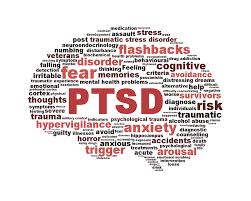In our April 2020 Forum we suggested strategies that you, our readers, could consider to cope with understandable anxiety caused by the pandemic – focusing on credible information from trustworthy sources (e.g., CDC); staying healthy to improve your body’s resistance; keeping contact with family/friends, etc., (see April forum).
Today, we’ll focus on the importance of recognizing early signs of post-traumatic stress disorder (PTSD) because first responders (those on the forefront) combatting the deadly consequences of the pandemic are especially vulnerable to developing signs and symptoms of PTSD.
We all know that many military veterans from wars in Vietnam, Iraq and Afghanistan returned home not only with the aftermath of physical wounds, but they also suffered from a high incidence of PTSD.
First responders helping patients with COVID-19, such as hospital and emergency department physicians, frontline nurses, respiratory/speech therapists, emergency medical technicians (EMTs) and others having direct contact with infected patients, experience a double threat. Not only are they witnessing and caring for seriously infected and often dying patients, but they also have to cope with fear and anxiety about contracting the virus and infecting their family.
Why It’s Important That We Recognize Signs of PTSD
We may have family/friends who show signs/symptoms of PTSD because it’s so prevalent not only in patients and their care providers, who have been hospitalized with COVID-19, but in many others who have been traumatized by physical assaults, such as rape, near death experiences (e.g., vehicle accidents, fires) or from childhood abuse (to name just a few).
The confrontation between protestors and police over the tragic death of George Floyd will add to the increasing numbers of those suffering from PTSD. Persons afflicted with PTSD may not be cognizant of their own suffering, but those who care about them may sense something is amiss, and could be instrumental in encouraging them to seek help.
One main reason first responders, such as doctors, may be unaware of their emotional stress is because they are so focused on saving the lives of others that they don’t recognize their own exhaustion, anxiety, depression, sleeplessness, nightmares and dread of conveying bad news to the family of COVID-19 patients. When one of the authors (L.L.) broke his wrist at age 17 in the middle of a competitive basketball game, he didn’t recognize his swollen/painful wrist until the game’s conclusion.
Some Causes of PTSD
(Adapted from the Diagnostic and Statistical Manual 5 of the A.P.A. (DSM5))
Exposure to actual or threatened death, serious injury, or sexual violence in one (or more) of the following ways:
- Directly experiencing the traumatic event(s).
- Witnessing, in person, the event(s) as it occurs to others (e.g., seriously ill COVID-19 patients).
- Experiencing extreme exposure to details of traumatic events (e.g., first responders transporting COVID-19 patients to hospitals).
Signs/Symptoms of PTSD
A. Presence of one (or more) intensive symptoms associated with the traumatic event(s).
- Recurrent, involuntary, intrusive memories of the event(s).
- Recurrent, distressing dreams related to the traumatic event(s).
- Flashbacks in which the person feels as if the traumatic event(s) is recurring.
B. Persistent avoidance of stimuli associated with traumatic event(s).
C. Negative cognitions and mood associated with the traumatic event(s).
- Inability to remember important aspects of the event(s).
- Feelings of detachment from others.
- Inability to experience positive emotions.
- Irritable and angry outbursts.
- Hypervigilance; startle reactions (e.g., to loud noises).
A person needs to have a portion of the above signs/symptoms for over a month to meet the criteria for a PTSD diagnosis.
Doctors, persons in the military, and those in other positions of authority are reluctant to reach out for help because they are concerned it will interfere with their career advancement or they will be perceived as “weak” by their colleagues. It’s helpful to counter the misperceptions by emphasizing to the afflicted person that “asking for help is a sign of strength.”
Fortunately, the majority of people experiencing traumatic event(s) recover uneventfully because of inner strength, perseverance and a good support system. Unfortunately, others without the benefit of support or the option for treatment can fall into depression, turn to substance abuse, have disruptive family lives (e.g., divorce) and their symptoms can become chronic.
Recognizing early signs of PTSD and encouraging treatment with health professionals (psychiatrists, psychologists, psychotherapists) experienced in various treatment approaches offer good chances of recovery and return to constructive lifestyles.
Please share with us (Drs. Lazarus and Foster) and those who follow our website any experiences you’ve had helping someone with PTSD or any questions you may have about the topic by posting a comment or clicking “Contact Us” and leaving us a private message (please provide your email address). We will respond to your message.
If you think family and friends would benefit from this and past forums, please recommend subscribing to our website so they can automatically receive the bimonthly forums. Lastly, our best-selling book, Insider’s Guide to Quality, Affordable Healthcare was selected by Book Authority as “one of the twelve best healthcare books in the world to read in 2020.” We encourage you to read the first chapters by visiting our website – click on the cover of the book – scroll halfway down the page to just below a second image of the book cover – click on “free preview”. The book is available from Amazon.com. For multiple copies, contact larry@lwlazarus.com.
The focus for our August forum will be the effective treatment for those suffering from PTSD.
Please stay healthy and safe. Larry and Jeff
